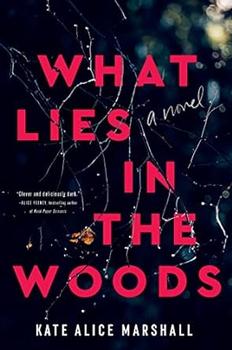Summary | Excerpt | Reviews | Beyond the book | Read-Alikes | Genres & Themes | Author Bio

As with our ideas about the rest of a rapidly changing Europe, any preconceived notions Americans may have about Sweden being solely populated by tall, blonde, blue-eyed people with a penchant for white pine furniture and an aptitude for cross-country skiing are long overdue for revision. Novelist Camilla Grebe addresses Sweden's evolving demographic, social, and economic landscape – as well as the prejudices that are harbored even in this relatively liberal country – in the context of her latest thriller.
After She's Gone is a follow-up to Grebe's earlier novel The Ice Beneath Her and features some of the same characters, but readers shouldn't be concerned if they haven't read its predecessor because After She's Gone functions perfectly well as a standalone novel. At the center of the story is young police detective Malin who has returned reluctantly to her hometown of Ormberg in order to work on a cold case, part of a new country-wide initiative to address unsolved crimes. She has spent the past several years trying to escape Ormberg, a provincial backwater without even its own grocery store whose rapidly aging population has grown increasingly depressed following the closure of local factories. And until she is called back for this investigation, it appeared that her escape attempts were going to be successful – after her time at the police academy and posting to a police department in a larger city, Malin developed a relationship with an insurance executive and made plans to move with him to Stockholm following their upcoming marriage.
But the cold case in Ormberg has called her home, where she's staying with her widowed mother and coming to terms with a nearly decade-old murder, one that has particular emotional heft for her - since she was the one who found the long-buried skeleton of a young child, back when she was an Ormberg teenager herself. Now, accompanied by criminal profiler Hanne Lagerlind-Schön and chief investigator Peter Lindgren, Malin is determined to establish the identity of that long-dead girl – and to avoid becoming bogged down by her own memories.
Things take a dramatic and dangerous turn, however, when Hanne is discovered disoriented and on the verge of hypothermia on the edge of the forest near where the body was found. And Peter has disappeared entirely. The only potential witness is a young woman wearing a sequined party dress – and now that young woman can't be found.
It turns out that the reason for the young woman's disappearance is that she's not a young woman at all. The figure spotted alongside Hanne is young Jake Olsson, who has taken to wearing his mother's clothes since her recent death. Jake discovers Hanne's notebook at the scene, but he's scared to turn it in and expose his own secret. And as he begins to read Hanne's notebook, he discovers not only clues to Hanne's investigation but also Hanne's own secret – that her memory has begun to falter and she fears a descent into dementia.
In a turn that will resonate with many American readers, Grebe explores how the economic downturn in small towns like Ormberg is coupled with fear and suspicion of immigrants, especially the many refugees who have settled in the area. When Malin's investigation reveals that the case may be linked not only to the current population of Syrian refugees but also to an influx of Bosnian refugees in the 1990s, she comes face-to-face with her own prejudices. "I am from Ormberg, and nobody helps us" she says to a colleague who calls her out on her distrust of refugees. "You have to clean up your own messes before you help the rest of the world." Grebe's novel, narrated from the points of view of Jake, Malin, and Hanne herself, offers not only a genuinely suspenseful narrative but also a thoughtful exploration of prejudices – about everything from race and age to nontraditional gender identity, addiction, and developmental disabilities – that lurk not only around but also within all of us.
![]() This review
first ran in the March 20, 2019
issue of BookBrowse Recommends.
This review
first ran in the March 20, 2019
issue of BookBrowse Recommends.

If you liked After She's Gone, try these:

by Kate Alice Marshall
Published 2024
Kate Alice Marshall's What Lies in the Woods is a thrilling novel about friendship, secrets, betrayal, and lies - and having the courage to face the past.

by Amulya Malladi
Published 2023
Meet Gabriel Præst, an ex-Copenhagen cop (who dresses with panache), jazz aficionado, and relentless pursuer of truth as he explores Denmark's Nazi-collaborator past and anti-Muslim present in a page-turning Nordic murder mystery with a cosmopolitan vibe
A library, to modify the famous metaphor of Socrates, should be the delivery room for the birth of ideas--a place ...
Click Here to find out who said this, as well as discovering other famous literary quotes!
Your guide toexceptional books
BookBrowse seeks out and recommends the best in contemporary fiction and nonfiction—books that not only engage and entertain but also deepen our understanding of ourselves and the world around us.